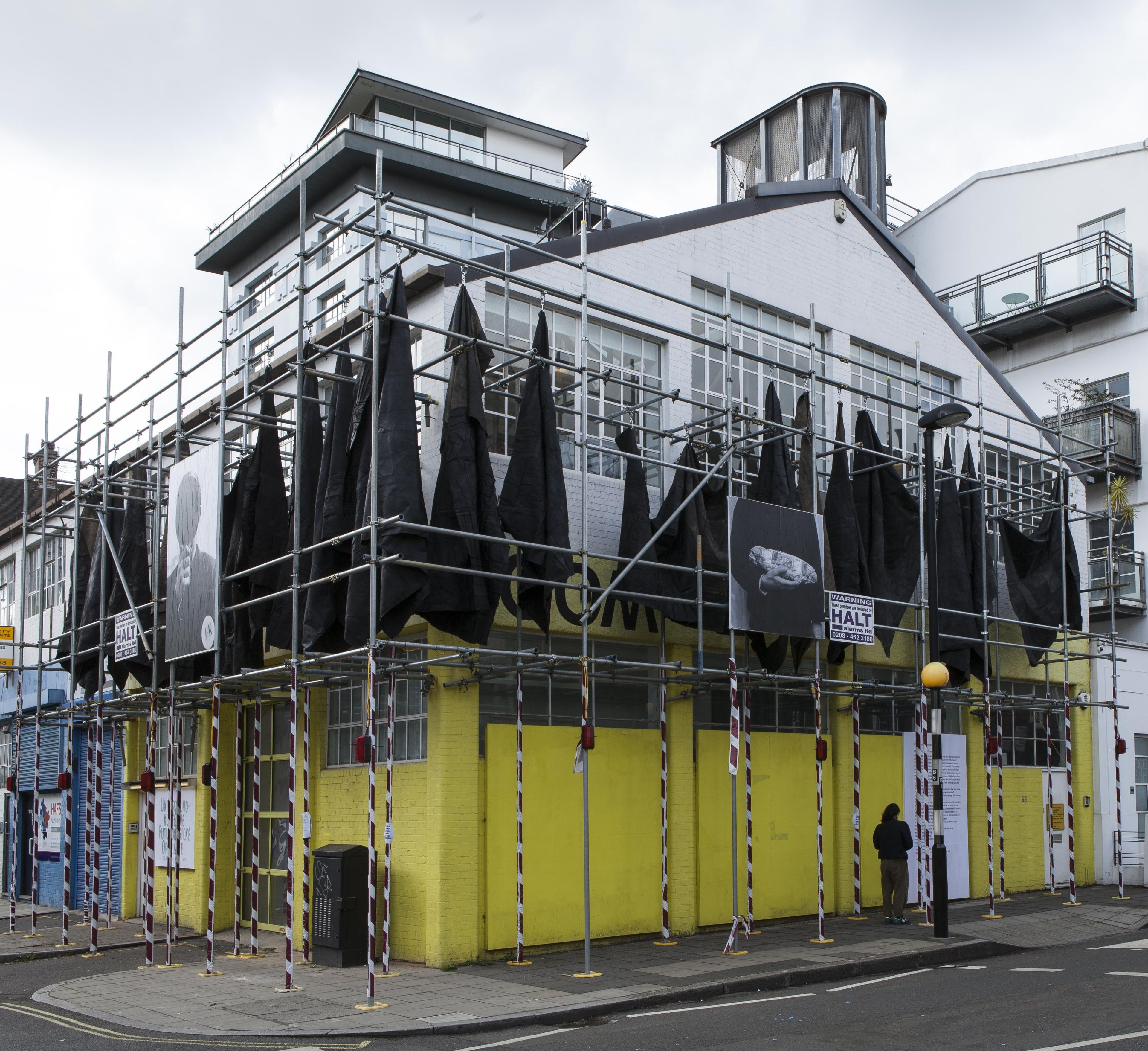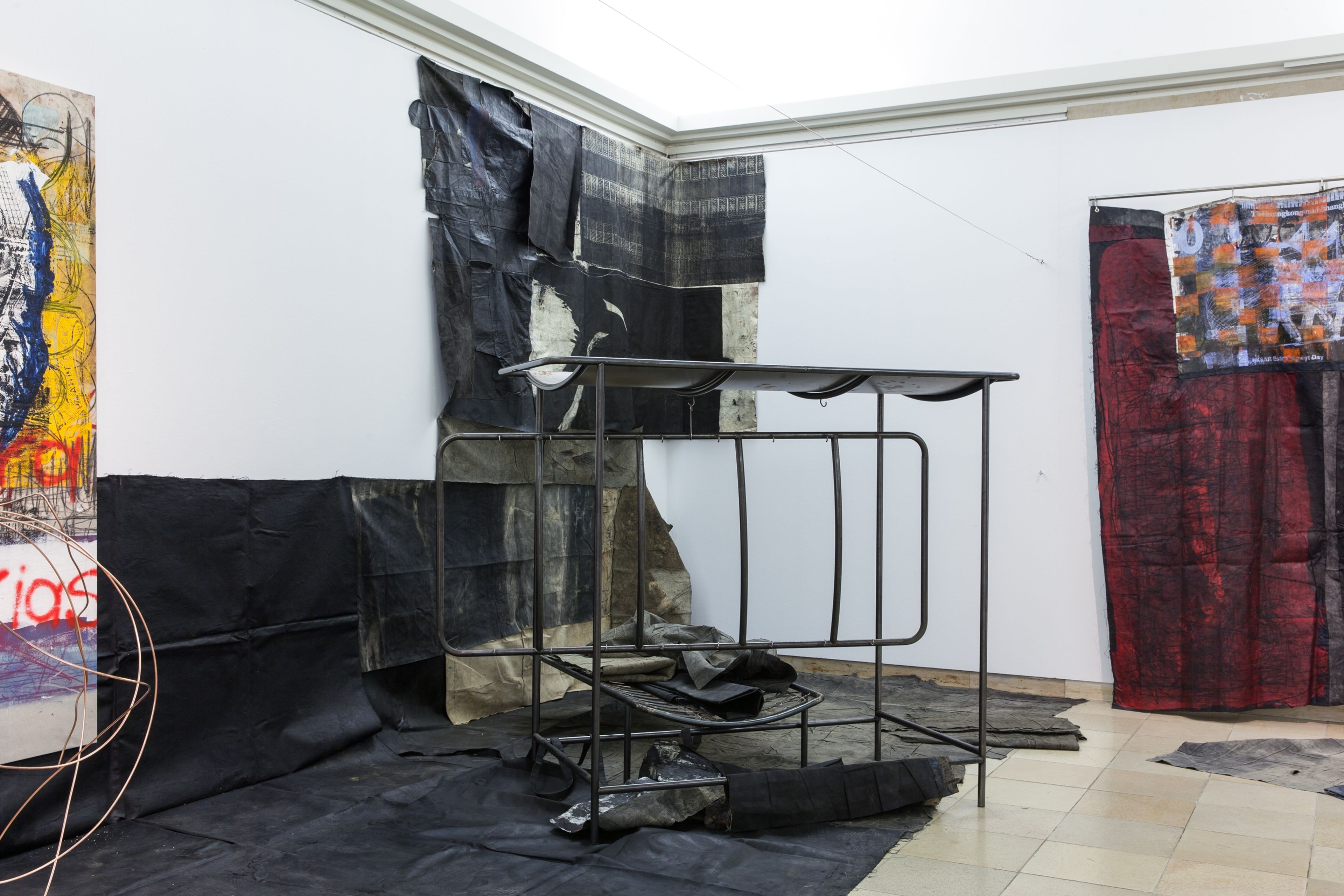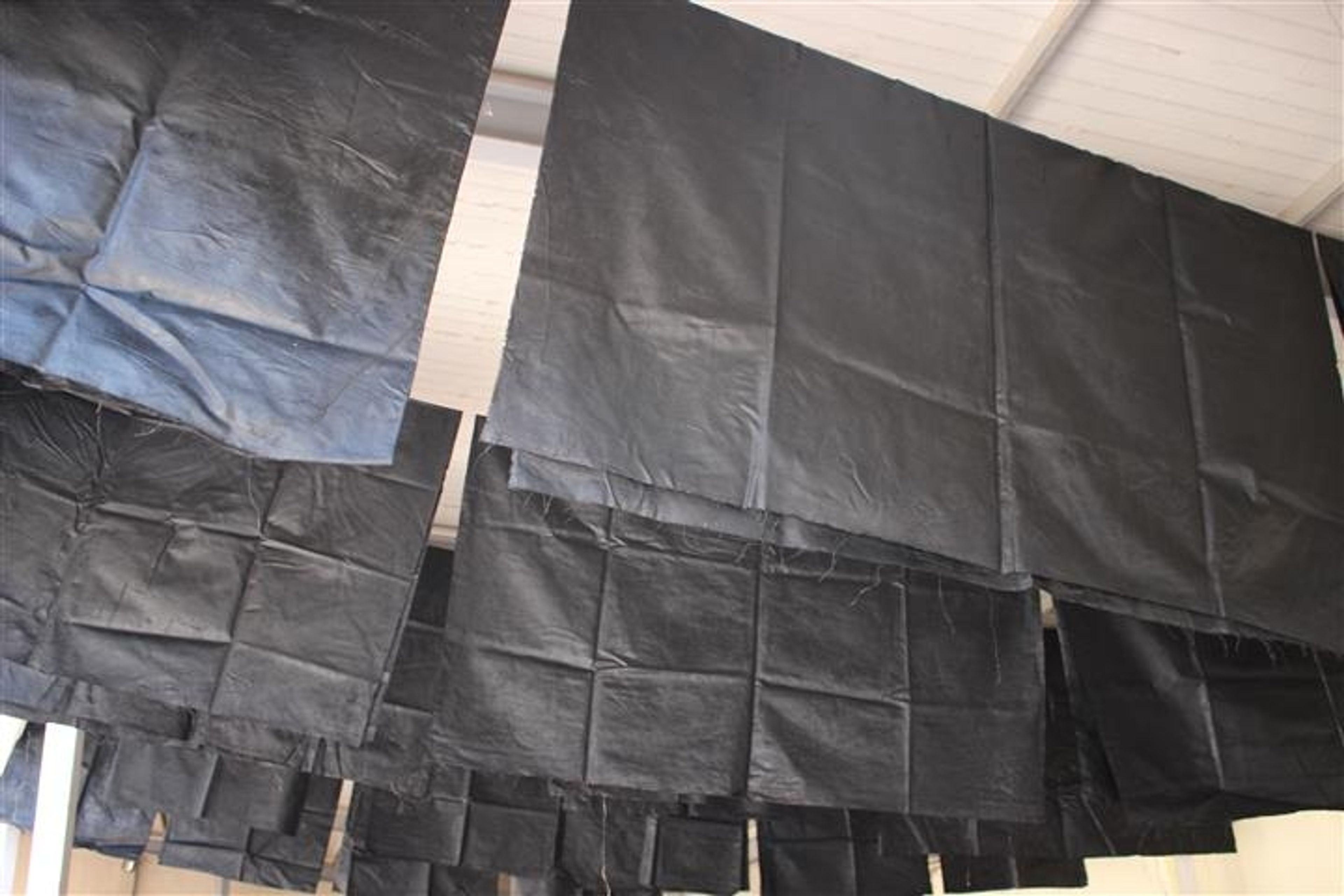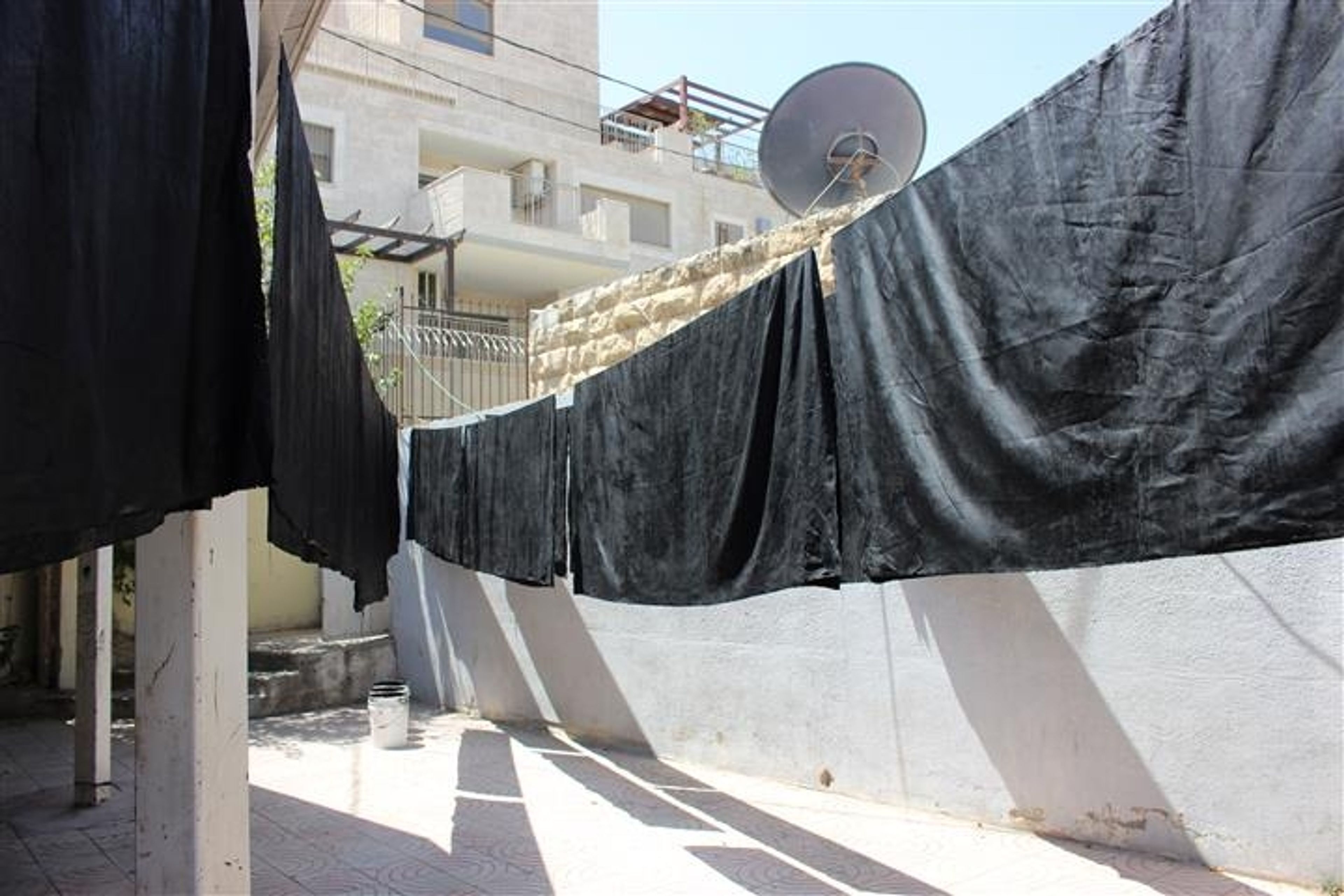2017–2018
On view in 2017 and continuing into 2018, international exhibitions of Oscar Murillo's work prominently featured hanging black canvases that are part of The Institute of Reconciliation, an ongoing project which profoundly extends the artist's engagement with the notion of belonging across different cultures.
Black canvases were hung around the outside walls of The Showroom in London in 2017, and were integral to Capsule 07, a major survey of new work by Murillo at Haus der Kunst in Munich through April 15, 2018 which was also accompanied by a major publication. At the Museum of Contemporary Art in Cleveland until January 28, A Poet*hical Wagerfeatured black canvas works suspended from the rafters of the exhibition space. Murillo’s work was presented in a solo booth at Untitled San Francisco in January 2018. An installation by the artist featured in Actions. The image of the world can be different, a group exhibition marking the opening of the refurbished Kettle’s Yard gallery in Cambridge, England. A preview of the exhibition in The Financial Times highlighted the inclusion of Murillo's work.


The most acute context for these works to date, however, is Ras al-Amud, a Palestinian neighborhood in East Jerusalem where a new iteration of the project was on view at the Silwan Club. Black canvases the size of bedsheets were hung from multiple washing lines in the small outdoor space of this former community center, close to the security fences around Ma’ale ha-Zeitim and Ma’ale David—Jewish settlements which have taken root in the Arab area in the last 20 years. This installation was part ofJerusalem Lives, the inaugural program at the Palestinian Museum organized by Reem Fadda, who also selected Murillo's project for the 2017 Sharjah Biennial.
In an interview with Sáez de Ibarra which is included in a major new monograph about the artist, Murillo describes the process of making the black canvases and their significance:
"It's like slow bleeding, clearing a passage by painting, ironing, folding, rubbing with a piece of black graphite. Those are all things you can do at home—tasks like sweeping or ironing—it's just that in this case they're done to black canvases, paying tribute to grief and mourning, but not to something specific. . . It's a manifestation of an attitude, which is larger than one’s own self . . . Right now it seems that in many parts of the world—or everywhere, even—there is a shroud of darkness . . . There is always a story under the surface, and those stories are often quite peculiar; they have a strange way of manifesting themselves."

In Jerusalem, as Mary Pelletier writes inHyperallergic, the conflicted location took the work in a new direction: "As plans for Jerusalem Lives got under way, Murillo's approach to his black canvas work was changing. What had begun as a desire for intensity, rendered through experimentation with repetition and the possibilities of black paint, developed into a more site-specific practice."
In the artist's own words at the opening of the exhibition, "I thought it should not continue, that same kind of rhythm of existence in the studio, because something greater had happened. To just simply go back to the studio and to continue to make that work would just be to deny that experience. I don’t want the work to become transfixed into one singular kind of context."
Related Event:
Wednesday, February 21, 2018, 5:30–7 PM Contemporary Art Talks: Oscar Murillo Goldsmiths University, London

